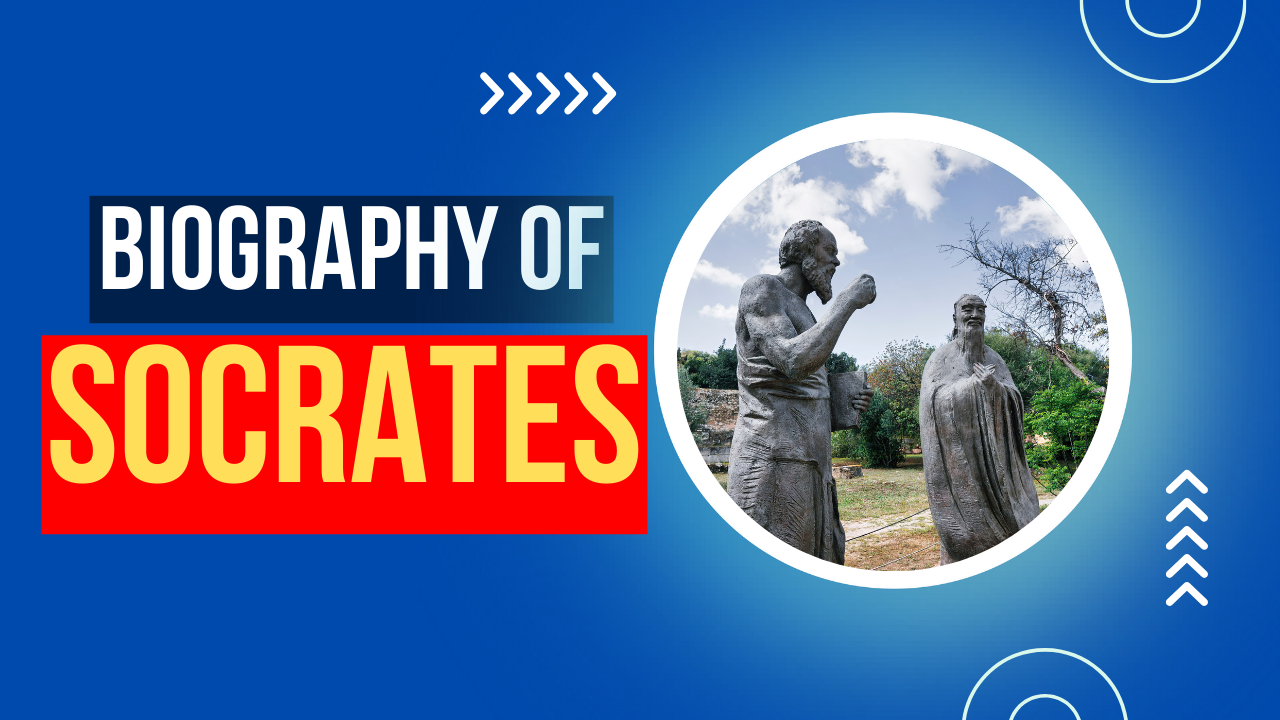Socrates (470/469–399 BCE), the mentor of Plato and pioneer of moral philosophy, was born to Sophroniscus (a sculptor) and Phaenarete (a midwife). Socrates wedded Xanthippe, and some sources suggest he later married Myrto as well. Together with Xanthippe, he fathered three sons, two of whom were quite young at the time of his passing. Socrates, born and raised in Athens, spent the majority of his life there. In his youth, he demonstrated a strong passion for learning and extensively studied the works of the esteemed contemporary philosopher Anaxagoras, as recounted by Plato (“Socrates – Life & Philosophy,” 2009). Additionally, he received instruction in rhetoric from Aspasia, a skilled companion of the influential Athenian leader Pericles.
Initially trained as a sculptor, he engaged in various other pursuits (Mark, 2023). Although he had modest beginnings, Socrates had the means to pursue a career as an infantryman, displaying remarkable physical prowess and courage. He notably performed a heroic rescue of the future Athenian leader Alcibiades during the siege of Potidaea in 432 B.C. Throughout the 420s, he actively participated in various battles of the Peloponnesian War(“Socrates – Life & Philosophy,” 2009b). Despite his military engagements, Socrates remained devoted to Athens, where he garnered respect and affection from the city’s younger generation. Eventually he turned to philosophy and it was in that realm that he found his true calling, leaving an indelible mark on the course of intellectual history. Socrates referred to himself as a gadfly of Athens because he saw his role as one who constantly questioned and challenged societal norms and beliefs. Socrates believed that his philosophical inquiries served to awaken people from complacency and stimulate deeper thinking about important issues. However, his beliefs, his methods and his attempts to awaken the youth by arousing in them a thirst for knowledge and questioning the established belief system didn’t sit well with the society. He was accused of corrupting the youth and impiety. Brought to court he was tried for these ‘crimes’ in 399 BCE.
The Trial and Death of Socrates marks a pivotal moment in Philosophy. Socrates opted to defend himself rather than plead for leniency. Plato’s vivid account depicts Socrates skillfully dismantling his accusers, emphasizing his mission to foster critical thinking and ethical reflection. Despite Socrates’ impassioned defense, the jury, influenced by political factors, condemned him to death. Unfazed, Socrates calmly chose to drink hemlock, facing his mortality with composure.


